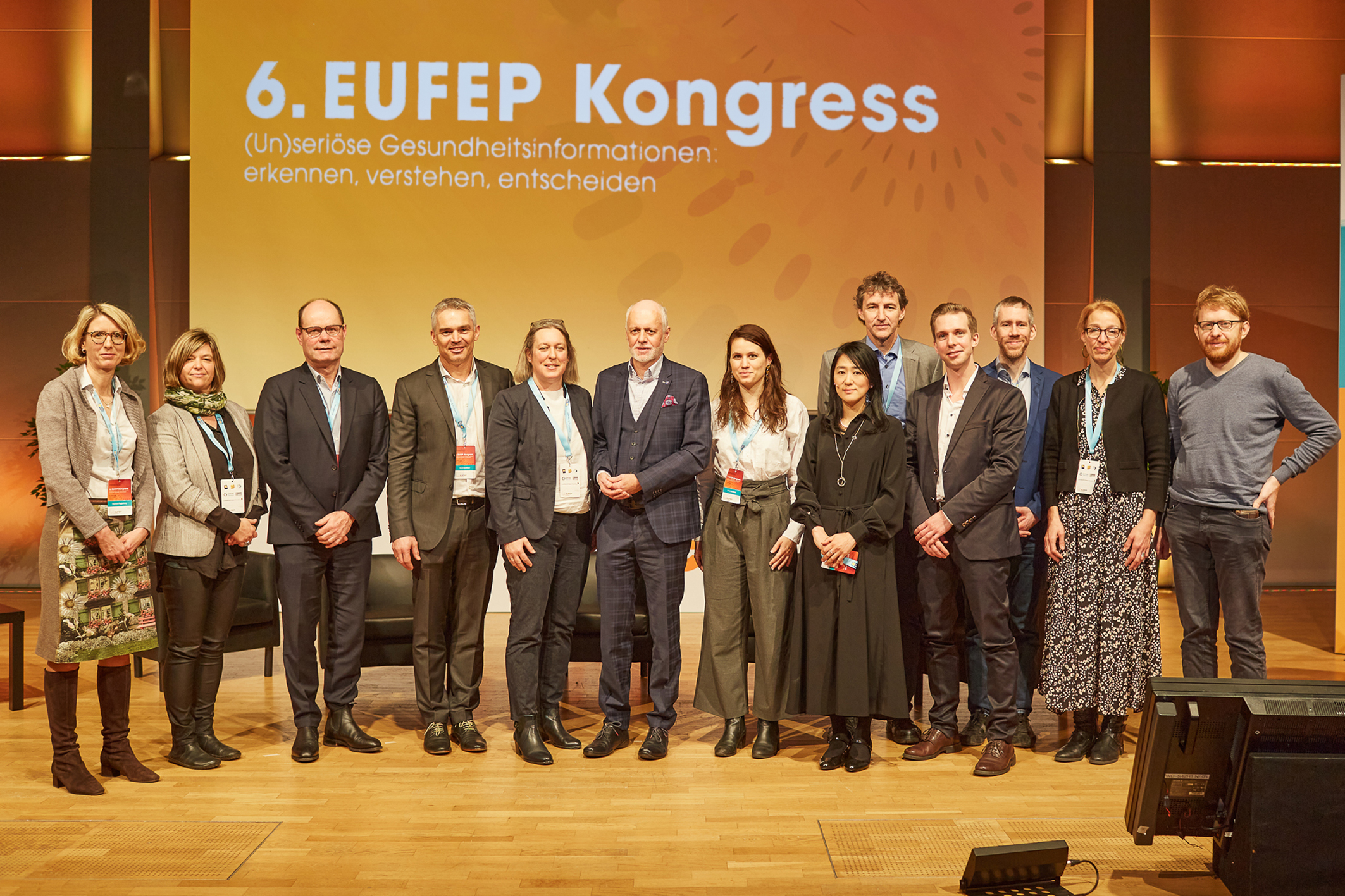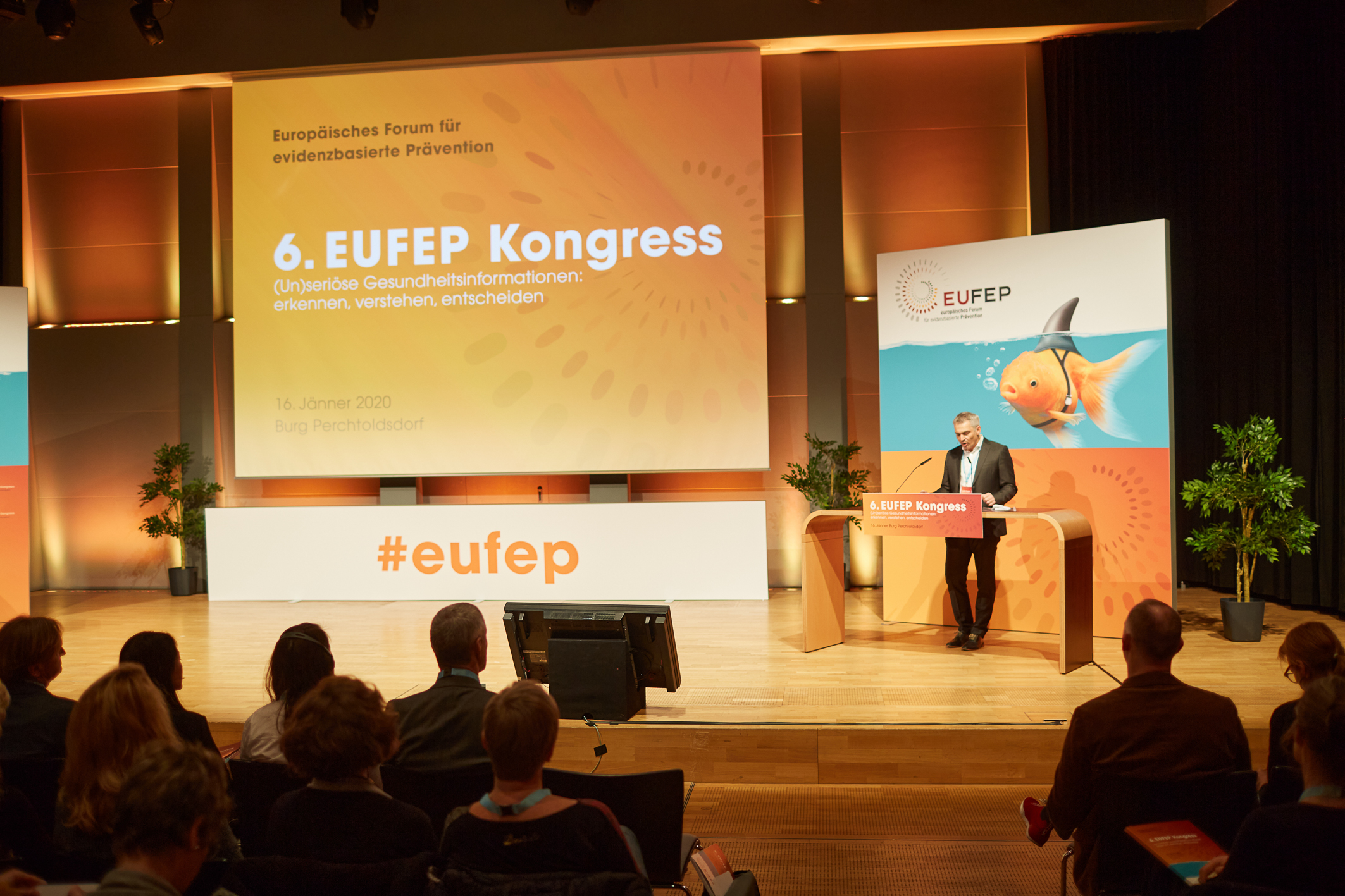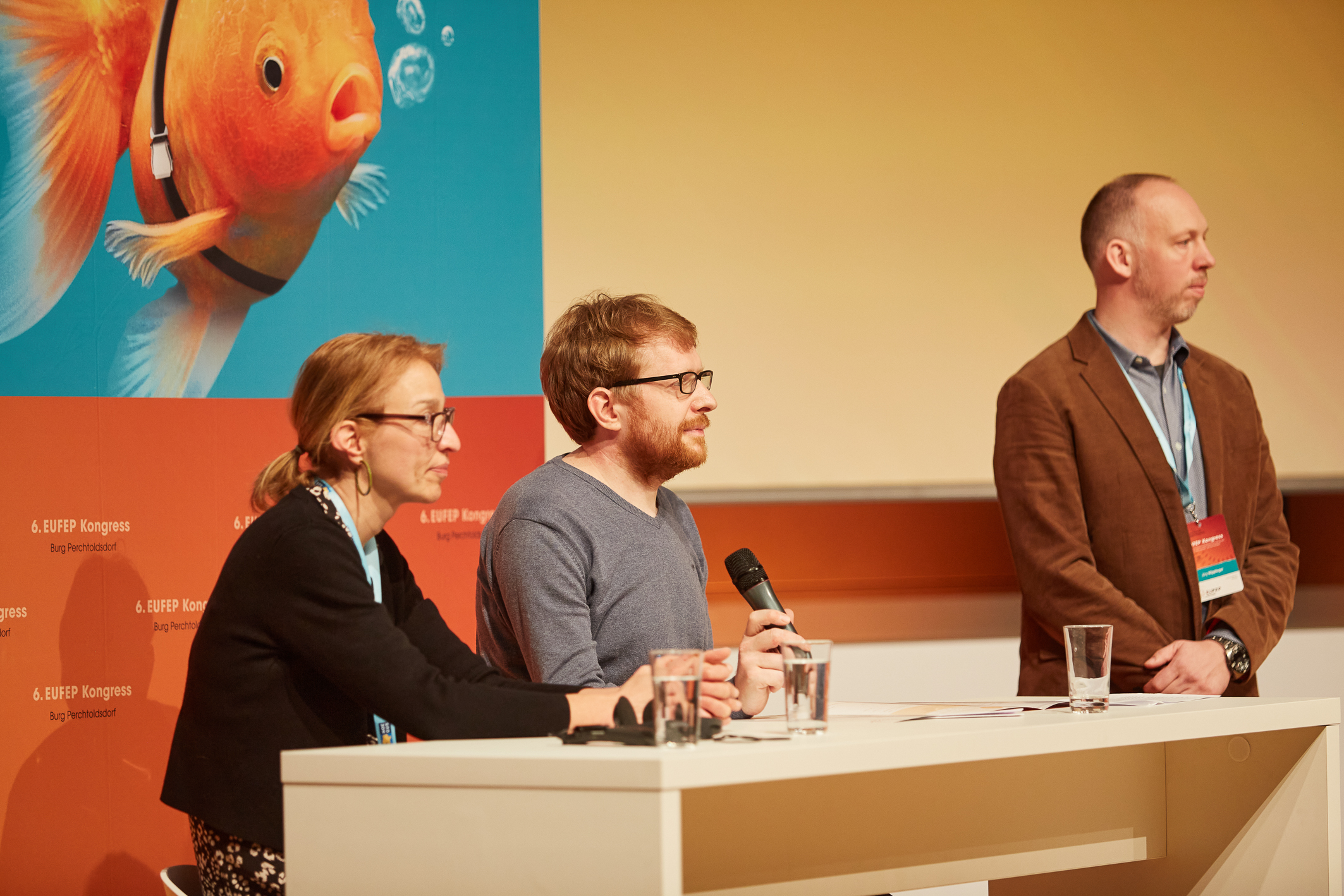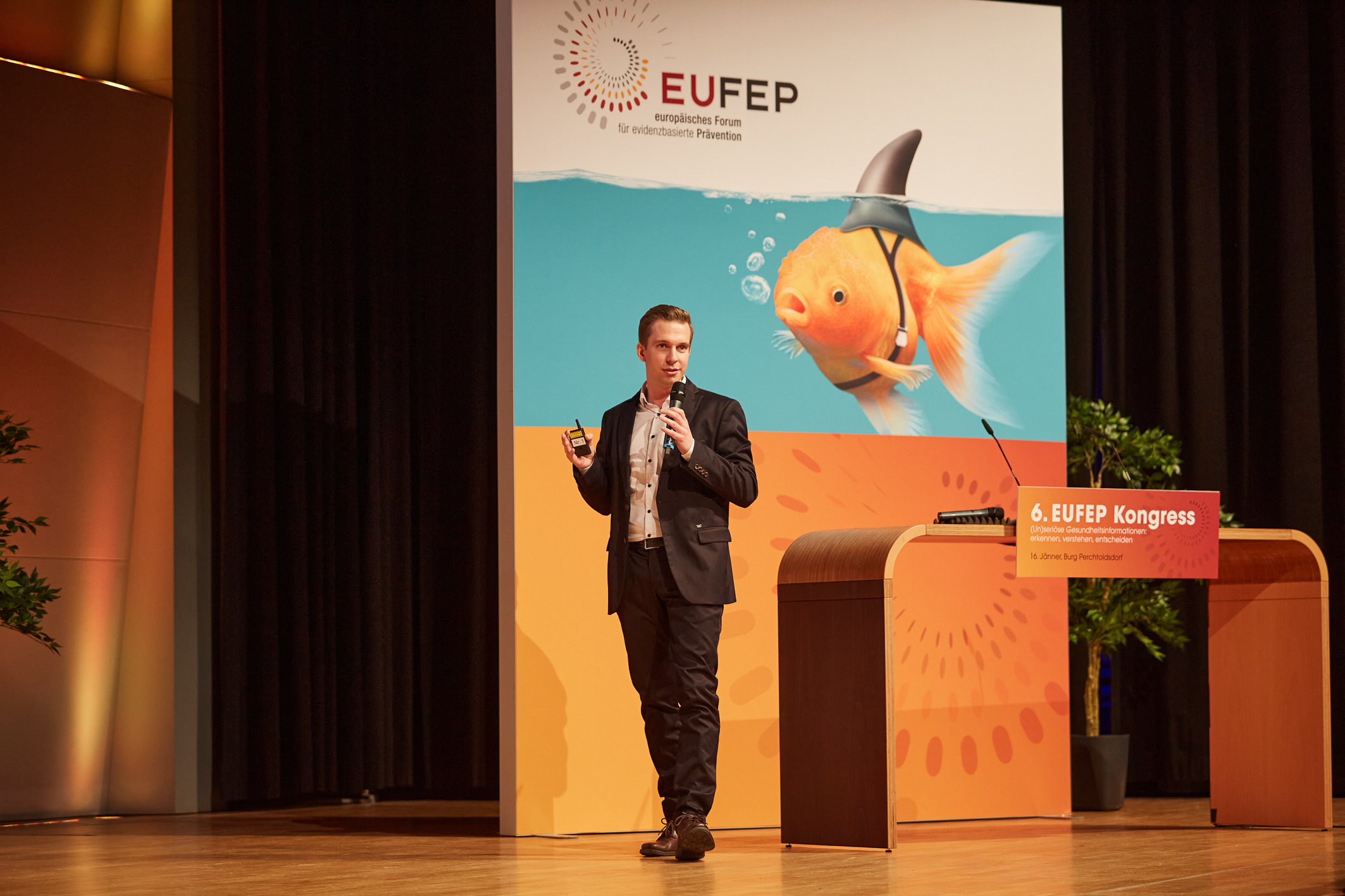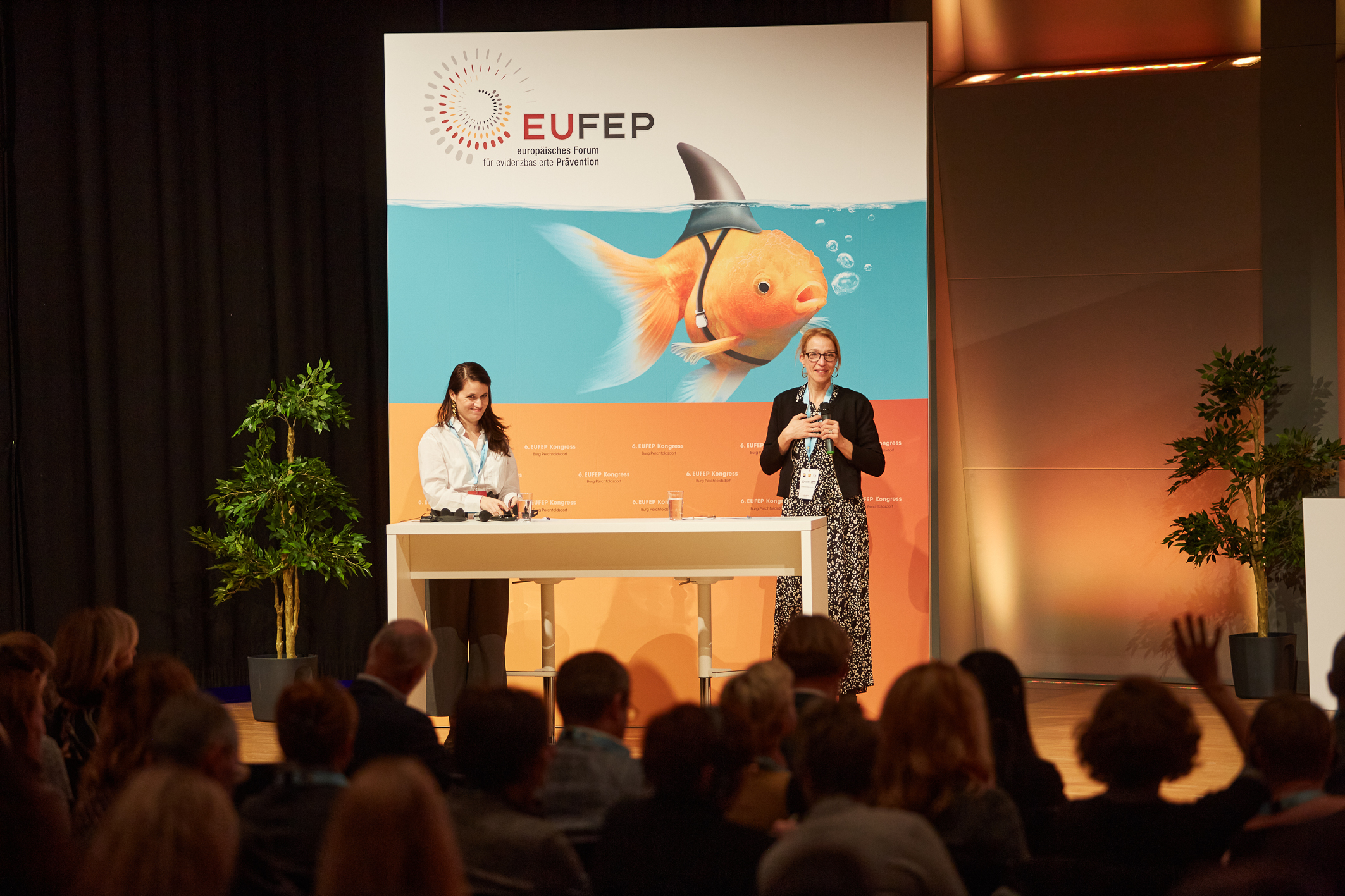International experts addressed the identification of health fake news, how to counteract them and presented online platforms that already offer trustworthy health information at the 6th European Forum on Evidence-Based Prevention (EUFEP). There were calls for information campaigns, better public relations, improved dissemination of evidence-based health information, enhanced communication between doctors and patients and training for health professionals.
In his opening speech, Prof. Gerald Gartlehner, Head of the Department for Evidence-based Medicine and Evaluation at Danube University Krems, underlined the relevance of trustworthy, evidence-based health information in the age of fake news. Thus, this congress contributed to enlightenment by raising awareness and helping people in finding well-founded information and identifying false information. Alongside Mrs. Angela Kaminski-Hartenthaler, scientist at the Department for Evidence-based Medicine and Evaluation, Gartlehner was the scientific director of the EUFEP Congress.
Prof. Stefan Nehrer, Dean of the Faculty of Health and Medicine at Danube University Krems, pointed to the importance of the Department of Evidence-based Medicine and Evaluation and the Cochrane Centre for Danube University Krems. In his welcoming words Mr. Martin Eichtinger, NÖGUS chairman and member of the Lower Austrian government, outlined the goal of giving people more security in dealing with information on the Internet which is also expected to be part of comprehensive health care.
Fake news as a health risk
In the course of a plenary session, Dr. Riko Muranaka, researcher at Kyoto University and the Bernhard Nocht Institute for Tropical Medicine, and Mrs. Emilie Karafillakis, researcher at the London School of Hygiene and Tropical Medicine, discussed vaccination myths. Muranaka illustrated the 70 percent drop of the HPV vaccination rate to one percent in Japan due to false reports. Since then, Muranaka is engaged to raise awareness and ultimately increase the HPV vaccination rates. Karafillakis' research focuses, among other things, on the influence social and digital media have on vaccination rates. Emotional campaigns influence people more than mere facts are the results shown in her research. The only response is to strengthen the trust in the relationship between patients and doctors and to disseminate evidence-based information.
Identifying and invalidating harmful health information
Mr. Philipp Schmid, University of Erfurt, showed possibilities to refute medical myths. First of all, the deniers of science needed to be identified, he said. The identification of those is based, for example, on the fact that they oppose established opinions, represent the interests of companies or spread fears and phobias. In order to actively fight against these medical myths and false experts, a culture of dispute must be introduced. It is necessary to detect the threat, prepare a defensive attitude and, in cooperation with the media, disseminate evidence-based health information.
Best practice - Good health information
Speakers presented various platforms that disseminate evidence-based health information. The Medizin-Transparent.at project deals with questions posed by readers. The editorial team, headed by Mr. Bernd Kerschner at Danube University Krems, receives on average between 200 to 300 inquiries per year. Most of them refer to advertising claims or widespread health myths. The truthfulness of these statements is checked on the basis of scientific studies and published on the website.
Mrs. Nicola Kuhrt and Mr. Hinnerk Feldwisch-Drentrup presented the platform MedWatch. The speakers explained how they search the net and newspapers daily for dangerous and dubious promises aiming to provide information to the readers with daily news, interviews and reports on health topics and fake sites.
In England, the British platform Behind the headlines is publicly funded by the National Health Service, accessible to the public, checking the reliability of the content the British media covers and was presented by Dr. Rob Cook.
Dr. Klaus Koch, Institute for Quality and Efficiency in Health Care, introduced the website gesundheitsinformationen.de. Koch explained that the focus could be shifted to good, trustworthy health information. Since 52 percent of the population obtains health information on the Internet decent health information should also be offered in appropriate formats.
Fake news in general medicine
Dr. Stephanie Poggenburg from the Austrian Society for General Medicine talked about the trustworthy relationship between patients and doctors. This is where communication, interpersonal factors and time are particularly important to invalidate fake news. An area in which training needs to upgraded and improved as well, and doctors living up to this example as good role models are needed. In addition, Poggenburg called for a stronger cooperation between research and practice and an upgrading of the general practitioner profession.
Dr. Nicole Posch, MPH, from the Medical University of Graz presented the EVI-Box. EVI is a Styrian pilot project which aims to increase the health competence of patients by delivering high-quality health information in general medical practices.
Mr. Peter Nowak, Head of the Department of Health and Society at Gesundheit Österreich GmbH spoke about the topic of medical fake news that challenge the health competence of citizens and patients. He called for a good digital orientation offering interesting tools and initiatives within the health sector. This must be structurally anchored in the health care system in order to guarantee commitment, financing, bundling of good health information, developments in patient rights, further training of health professionals and broad public relations.
Contact
Dr. Angela Kaminski-Hartenthaler
Tags

